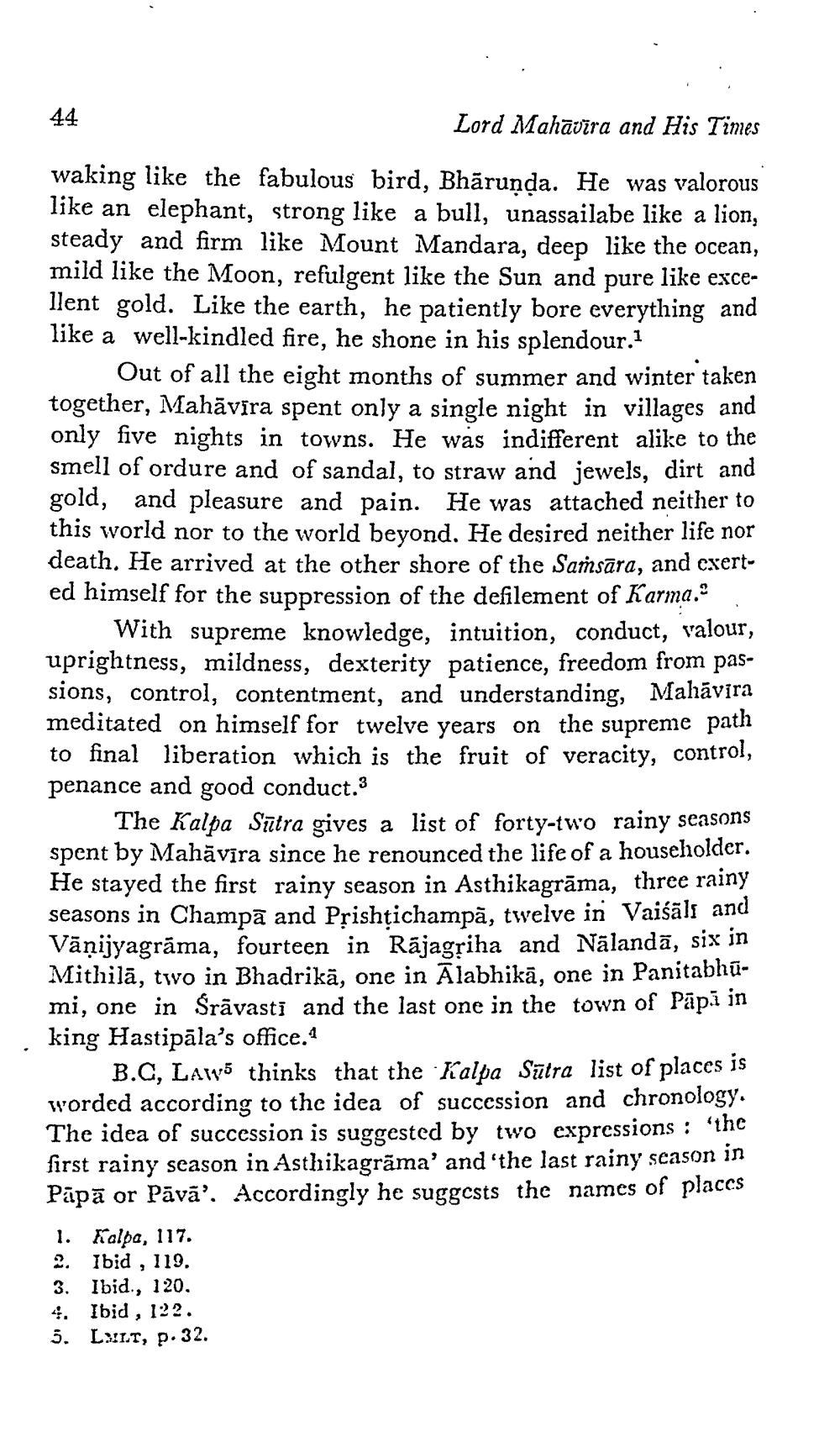________________
44
Lord Mahāvīra and His Times waking like the fabulous bird, Bhārunda. He was valorous like an elephant, strong like a bull, unassailabe like a lion, steady and firm like Mount Mandara, deep like the ocean, mild like the Moon, refulgent like the Sun and pure like excellent gold. Like the earth, he patiently bore everything and like a well-kindled fire, he shone in his splendour.1
Out of all the eight months of summer and winter taken together, Mahāvīra spent only a single night in villages and only five nights in towns. He was indifferent alike to the smell of ordure and of sandal, to straw and jewels, dirt and gold, and pleasure and pain. He was attached neither to this world nor to the world beyond. He desired neither life nor death. He arrived at the other shore of the Saṁsāra, and exerted himself for the suppression of the defilement of Karma."
With supreme knowledge, intuition, conduct, valour, uprightness, mildness, dexterity patience, freedom from passions, control, contentment, and understanding, Mahāvira meditated on himself for twelve years on the supreme path to final liberation which is the fruit of veracity, control, penance and good conduct.3
The Kalpa Sitra gives a list of forty-two rainy seasons spent by Mahāvīra since he renounced the life of a householder. He stayed the first rainy season in Asthikagrāma, three rainy seasons in Champā and Prishtichampā, twelve in Vaiśāli and Vānijyagrāma, fourteen in Rājagriha and Nālandā, six in Mithilā, two in Bhadrikā, one in Ālabhikā, one in Panitabhūmi, one in Srāvasts and the last one in the town of Pāpā in king Hastipāla's office.
B.C, LAV5 thinks that the Kalpa Sūtra list of places is worded according to the idea of succession and chronology. The idea of succession is suggested by two expressions : 'the first rainy season in Asthikagrāma' and 'the last rainy season in Pāpā or Pāvā”. Accordingly he suggests the names of places 1. Talpa, 117. 2. Ibid, 119. 3. Ibid., 120. 4. Ibid, 122. 5. L:L.1, p.32.




